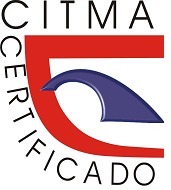La actividad de tutoría en la evaluación de desempeño de roles en la carrera de Ingeniería Informática
Keywords:
Role training and evaluation, computer engineer roles, business analystAbstract
The formation of professional career roles and the evaluation of their performance are very important to validate the preparation of the student as a future graduate of the profession. In the Computer Engineering career, this aspect is addressed based on the professional model defined in Plan D, which states the roles that are developed in the career. This issue has been addressed from the development and evaluation of roles that are formed in the subjects. In this work, the tutor stands out as the integrating figure that promotes and directs the formation of professional roles in students, based on the stimulation and evaluation of their performance in the tasks they carry out in the development of the research projects that they direct. This article presents an experience of the indicators and tools used for the evaluation of the business analyst role in the Computer Engineering career at the "José Antonio Echeverria" Technological University of Havana.
References
Adell, J., & Bernabé, Y. (2007). Software libre en educación. Tecnología educativa. Madrid: McGraw-Hill, pp. 173-195.
Alonso, L. A., Corral, J. A., & Parente, E. (2023). Método de aula invertida para la formación de metacompetencias profesionales en estudiantes universitarios basada en el aprendizaje combinado (bLearning). LUZ, 22(1).
Batista, G. G., & Fernández, F. A. (2011). Investigación interdisciplinaria en las ciencias pedagógicas. La Habana: Pueblo y Educación.
CUJAE (2017). Plan del Proceso Docente. Plan de estudio E para la carrera de Ingeniería Informática.
Culebro, M., Gómez, W. G., & Torres, S. (2006). Software libre vs. software propietario. Ventajas y desventajas. Creative Commons, México.
Durán, R. S. (2019). Aplicación Android para la Orientación Profesional en la Universidad Tecnológica de La Habana José Antonio Echeverría, Trabajo de diploma en opción al título de Ingeniería Informática, Universidad Tecnológica de La Habana José Antonio Echeverría.
González, J., Seoane, J., & Robles, G. (2003). Introducción al software libre: Barcelona: Fundació per a la Universitat Oberta de Catalunya.
Idoneos (s.f.). Psicología social. Roles y dinámica de grupos. Retrieved from https://psicologiasocial.idoneos.com/354958/
IEEE (2004). Guide to the Software Engineering Body of Knowledge-SEBOK. California: IEEE Computer Society.
Ministerio de Educación Superior (MES) (2022). Resolución 47, La Habana.
López, Y., André, M., Infante, A. L., Escalera, K. & Verona, S. (2018). Evaluación del desempeño de roles en equipos de desarrollo de software. Utilización de escalas de valoración. Revista chilena de ingeniería, 26, 486-498.
Peñalvo, F. J. & Holgado, A. G. (2018). Modelo de Dominio. Universidad de Salamanca.
PMI (2021). Guía de los Fundamentos para la Dirección de Proyectos (Guía del PMBOK®) (Séptima edición): Project Management Institute, Inc.
PMP (s.f.) . Test de Prueba Marco de Referencia Gestión de Proyecto.
Sánchez, R. G. (2003). Software libre vs. Software propietario: programando nuestro futuro. Historia Actual Online (2): 125-140.
Service B. (2023) Cursos de trabajo en equipo Retrieved from https://www.todoempresa.com/cursos/trabajo%20en%20equipo%20demo/tema2-4.htm
Simons, B. C., & colectivo de autores, (2005). Esquema conceptual, referencial y operativo sobre la investigación educativa. La Habana: E. P. y. Educación Ed.
Stallman, R. (1994). Por qué el software no debe tener propietarios. Internet, hackers y software.
Published
How to Cite
Issue
Section
License
Copyright (c) 2023 Miriam Roll Hechavarria, Margarita Andre Ampuero

This work is licensed under a Creative Commons Attribution-NonCommercial 4.0 International License.













